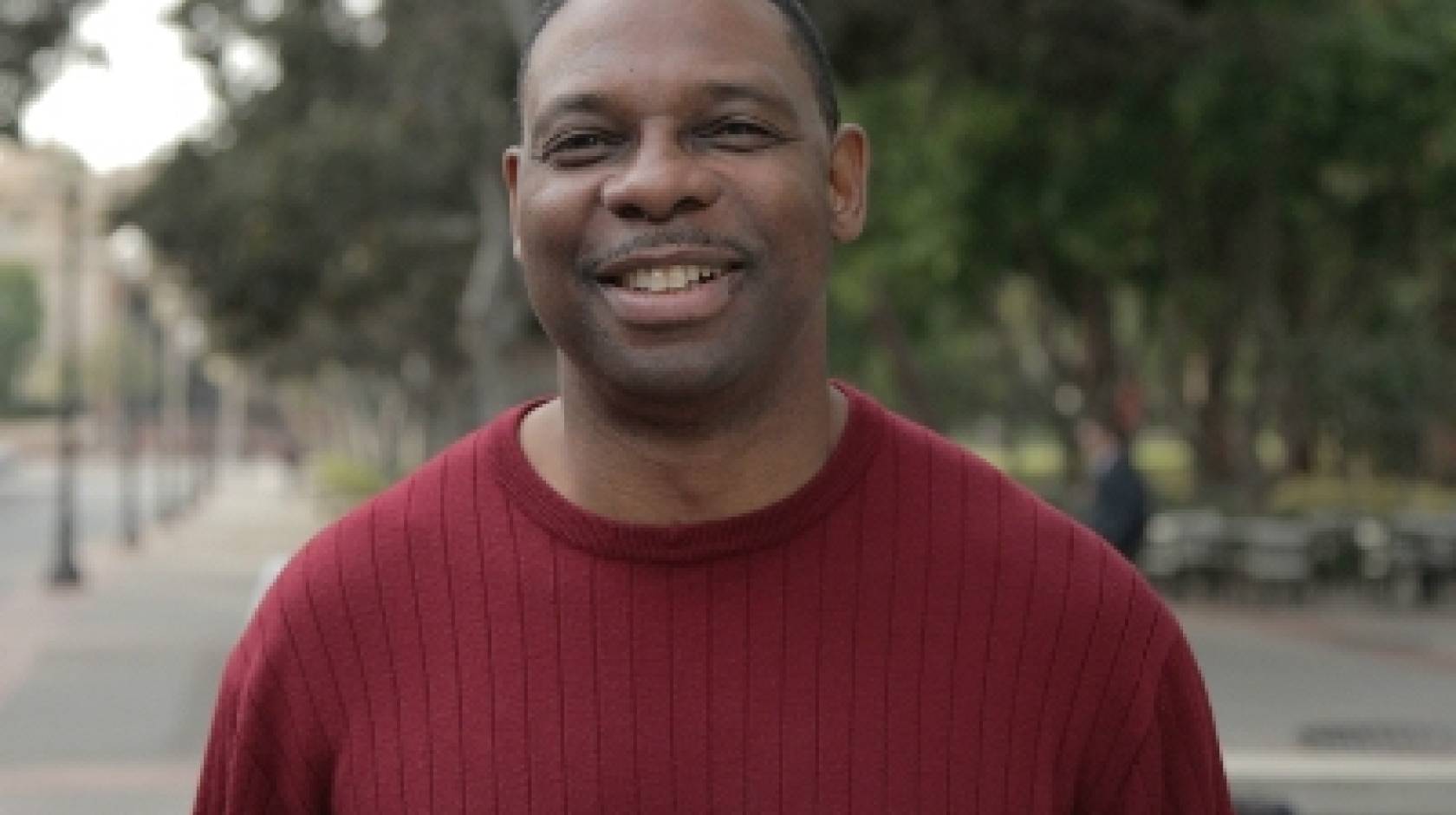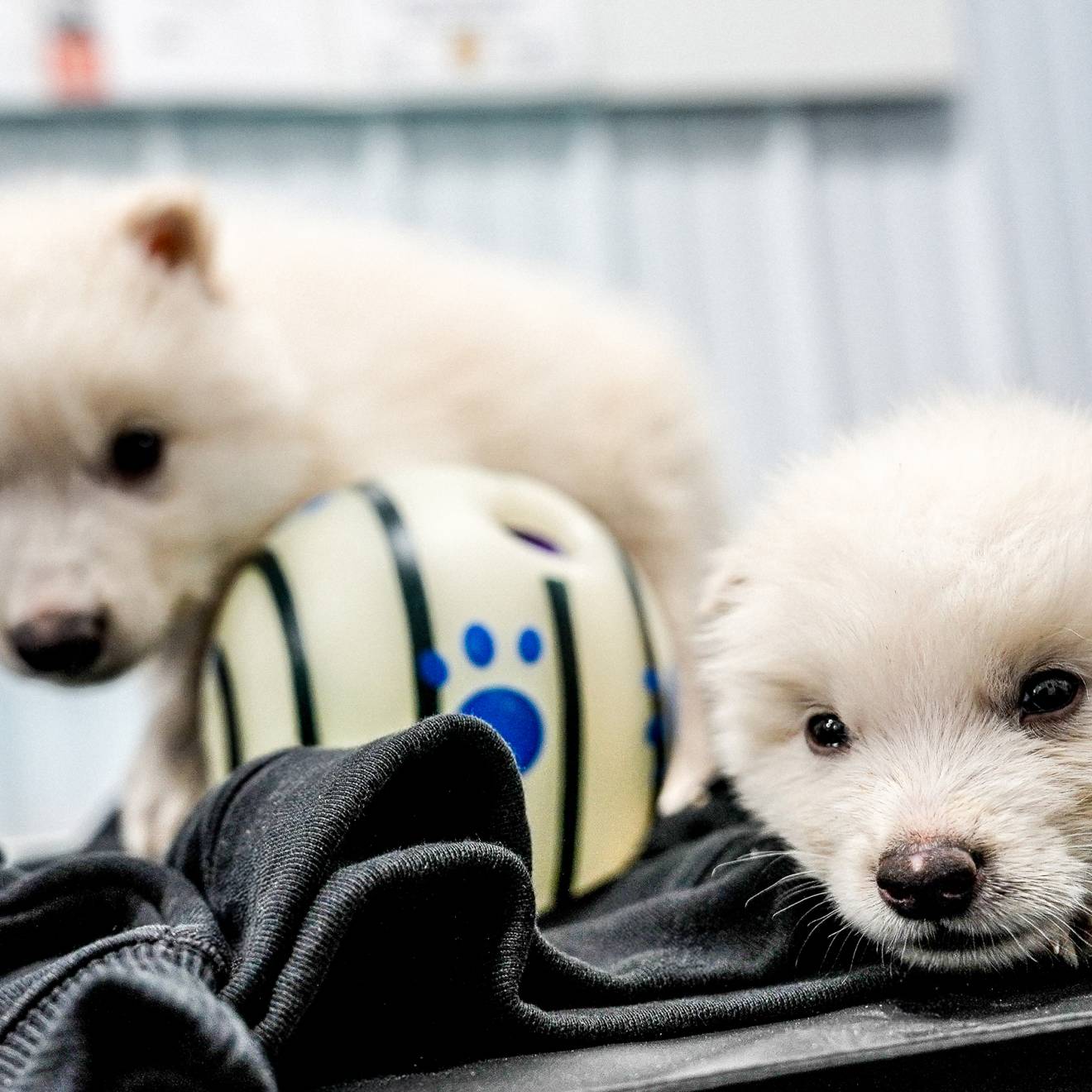Rebecca Kendall, UCLA Today

How many of us have read a story about someone performing a selfless and generous act and been inspired to pay it forward? How many of us have actually acted on that feeling? Tony Tolbert, associate director of admissions and outreach and an adjunct professor at UCLA School of Law, did — in a big way.
Moved by a magazine story about an Atlanta family who sold their home and donated $800,000 from the proceeds to charity, Tolbert began to think hard and long about what he could do to make the world a bit better for someone.
"It had a profound effect on me," said Tolbert. "Once I read it, I couldn’t shake it for two or three days. It kept coming back to me."
So in 2011, at age 50, Tolbert decided to move in with his mother and rent his fully furnished South Los Angeles home for $1 a month for a year to a woman and her children who had left an abusive situation and were trying to get back on their feet. He worked with a local social services agency to find a suitable tenant and was able to offer a safe, living space to this struggling family he had never met before.
This arrangement worked so well that Tolbert decided to do it again a year later.
On Dec. 29, Tolbert welcomed Felicia Dukes, a single mother of four, who had been living at Alexandria House since February 2011. The family landed at the nonprofit transitional home after Dukes went on maternity leave and fell behind on rent.
"I think a lot of us underestimate or downplay what we can do just by one act and what ripple effect or multiplier effect that might have," said Tolbert, whose story has recently been featured in the Los Angeles Times, CBS News, the Huffington Post, People magazine and the U.K. Daily Mail, to name a few. "I’ve had so many wonderful opportunities in my life as far as having a great family, wonderful educational opportunities, great jobs. I almost feel like if I’m not prepared to make a difference and contribute, who am I waiting for?"
Tolbert’s commitment to helping others is rooted in the example set by his parents. Growing up, his parents always had room for an extra person at their dinner table and had no qualms about offering someone who needed help a place to stay. "That really planted a seed from an early age of the notion that we all are responsible for one another, and we can help take care of one another," he said.
Very few people — even those with whom he works closest — knew of Tolbert’s inspirational gift prior to the news coverage. Donna Colin, director of major gifts for the law school, received an email over the winter break from a faculty member who had read Tolbert’s story in the Los Angeles Times and circulated it to his colleagues.
"I was absolutely flabbergasted because I have known Tony for a long time and had never known of this," said Colin, who has worked with Tolbert for eight or nine years and knew him prior to that as a volunteer coach for her daughter's basketball team.
"I also wasn’t entirely surprised, because I have always thought the world of him," said Colin. "His unbelievable generosity and courage are making me examine my own actions and inactions. Tony clearly walks the walk. And it makes me think of all the good intentions I have had, but have failed to implement. I feel inspired to try [to] be a better, more proactive and more giving person."
Since his story broke, Tolbert estimates he has received nearly 500 emails from people, mostly strangers, from all over the world. Many say that they’ve never before been inspired to write an email to someone they heard about in the news, but that they were so moved by Tolbert’s gesture that they had to reach out.
Some have even been inspired to perform their own acts of kindness and, like Colin, reflect on their own situation and how they can make a difference in their own communities. One man has offered to provide Dukes with free personal coaching for a year while one woman felt so inspired that she decided to replicate Tolbert's gesture by making her vacant home available to a family in need. The examples of how people have paid it forward are too many to remember off the top of his head, Tolbert said.
His story is not only catching the attention of adults, it is also impacting teens. A high school teacher in Seattle emailed Tolbert to tell him that she had incorporated his story into a class discussion about kindness in the aftermath of Sandy Hooks Elementary School in Connecticut. Her class has since pledged to do a community project to support the homeless. In addition, he was interviewed this morning by a group of high school students in Colorado who had chosen his story as the basis for a project on social justice.
"Frankly, I had no clue that this would resonate with so many people," said Tolbert, adding that he thought maybe a few people would pay attention to the story and maybe do something positive as a result. "I really had no idea the kind of ‘legs’ it would have."
He also didn’t anticipate the "legs" that his own career would have. Following in the footsteps of his father, who has been living with Alzheimer’s disease for the past 15 years and is unaware of the attention his son is receiving, Tolbert was a practicing entertainment lawyer who handled contracts between recording artists and record labels.
The younger Tolbert also dabbled in sports law. He worked on the U.S.-hosted World Cup soccer tournament in 1994 and served as general counsel for a now-defunct online enterprise founded by Shaquille O’Neal, among other things. "It was a lot of fun," said Tolbert, of his former career. "I had cool jobs. I wouldn’t have imagined these types of jobs existed when I was in law school, so to have the ability to work in that space was fun."
In 2000, he shifted professional paths and joined UCLA because he wanted to work more closely with people, especially youths, rather than paperwork. "I didn’t want my professional or life legacy to be that I did a bang-up job on 1,000 contracts. I would much rather it be that I’d helped touch 1,000 lives."
His role as associate director of admissions and outreach for UCLA School of Law is a good fit, he said, because it allows him to recruit the best and the brightest students, share information about the school, give tours, increase student diversity and encourage the next generation of lawyers and legal experts.
He also teaches a class called "Street Law" that sends law students out into the community to teach law classes at local high schools. Additionally, he co-directs the Law Fellows Program, which aims to prepare prospective students with the skills and information they need to apply to law school at UCLA.
"In my job, I’ve been fortunate to have opportunities to serve on a daily basis, whether it’s working with an undergraduate student who is thinking of going to law school or with law students who are going out into the community and teaching high school students in various parts of L.A.
"I get to be around young people who are, for the most part, full of hope and promise. Having that opportunity to be of service has been great."

